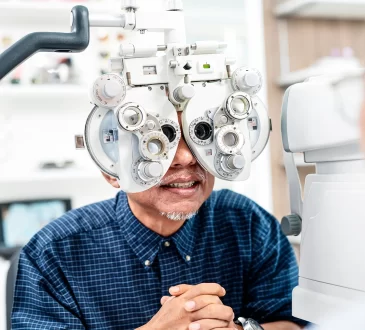
The Evolution of Addiction Treatment: A New Era of Care
The Transition from Conventional to Holistic Approaches
For decades, addiction treatment has largely relied on a one-size-fits-all model grounded in conventional methods, typically involving detoxification and residential treatment. While these approaches have helped many, they often fail to address the complex, multifaceted nature of addiction. In recent years, a significant paradigm shift has emerged, leading to the adoption of holistic approaches that consider the emotional, psychological, and spiritual aspects of recovery. This transition focuses on empowering individuals to understand their addiction’s root causes, enabling them to reclaim ownership over their lives. Holistic treatment recognizes the unique journey of each individual and implements strategies such as cognitive-behavioral therapy, dialectical behavior therapy, and trauma-informed care to promote long-term recovery and personal healing.
Understanding the Role of Luxury in Recovery Journey
Luxury in addiction treatment may initially seem at odds with the seriousness of the journey, but it plays a critical role in fostering an environment conducive to healing. Upscale facilities often provide a serene and tranquil setting that can ease the stress associated with recovery. The aesthetics and ambiance of the environment have been shown to impact mental well-being significantly. By incorporating elements like beautiful landscapes, relaxing interiors, and state-of-the-art accommodations, luxury treatment centers help clients feel valued and respected, setting a positive tone for their recovery process. Additionally, offering high-end services such as gourmet meals prepared by nutritionists or personal trainers enhances the overall experience and encourages individuals to engage fully in therapeutic activities.
How Upscale Facilities Redefine the Rehabilitation Experience
Upscale addiction treatment facilities are redefining the rehabilitation experience by emphasizing both comfort and care. These centers often boast a lower client-to-staff ratio, allowing for more personalized attention and tailored treatment plans. Clients are treated as individuals rather than mere statistics, creating an atmosphere of compassion and understanding. Facilities with lavish accommodations provide an escape from the chaos of the outside world, allowing individuals to focus solely on their recovery. From private rooms with en-suite bathrooms to swimming pools and spa services, these luxurious amenities can significantly enhance the recovery process, making it more appealing to engage in treatment and healing activities. Moreover, upscale treatment programs often integrate advanced therapeutic interventions such as art therapy, equine therapy, and adventure therapy, unlocking creative pathways to recovery that may be more engaging and effective for certain individuals.
Luxury Meets Therapeutic Innovation: What to Expect
State-of-the-Art Amenities That Enhance Healing
One of the most striking features of upscale addiction treatment centers is their commitment to providing state-of-the-art amenities that serve not just as luxuries but as integral components of the healing process. Facilities often include wellness centers, fitness studios, and serene outdoor spaces that promote physical health and well-being. Hydrotherapy pools and massage therapy rooms offer alternative therapeutic methods aimed at reducing stress, alleviating tension, and encouraging relaxation. Additionally, many upscale centers recognize the importance of a nutritious diet in recovery; thus, they hire professional chefs to create delicious, health-conscious meals designed to support clients’ physical health. Such amenities create a holistic healing environment where comfort and care coexist, helping individuals to begin healing not just from addiction, but also from the physical and emotional toll it has taken on their lives.
The Impact of Personalized Treatment Plans in Upscale Settings
In luxury addiction treatment centers, the emphasis on personalized treatment plans is paramount. Every individual arrives with a unique history, challenges, and needs. As a result, standardized, cookie-cutter recovery plans are increasingly being replaced by customized approaches that include a range of therapeutic modalities tailored to the individual’s specific circumstances. Skilled multidisciplinary teams typically include physicians, psychologists, nutritionists, and wellness experts who collaborate to create a comprehensive treatment strategy. This collaboration ensures that clients receive the exact support they need, whether dealing with co-occurring mental health disorders, specific traumas, or family dynamics that may contribute to their addiction. The emphasis on individual therapy, combined with the flexibility of treatment sessions, allows clients to explore their recovery journey at their own pace and feels empowered in the process.
Integrating Wellness: Yoga, Nutrition, and Mindfulness
The modern understanding of addiction emphasizes the importance of holistic well-being, leading many upscale facilities to integrate wellness practices such as yoga, nutrition, and mindfulness into their treatment programs. Yoga not only promotes physical health but also cultivates mental clarity and emotional resilience, helping individuals to reconnect with their bodies in a supportive and nurturing way. Nutritional counseling is a vital component, as a balanced diet can significantly impact brain function and mood, helping to stabilize emotions and reduce cravings. Mindfulness practices, including meditation and guided imagery, enable clients to foster self-awareness and develop coping strategies that are essential for navigating everyday challenges in recovery. Collectively, these wellness strategies enhance self-care, encouraging clients to build healthy habits that extend long after treatment has ended.
Cultivating Community: The Power of Support in High-End Rehab
Building Lasting Connections in a Luxury Environment
The role of community in the recovery process cannot be overstated. Upscale addiction treatment centers create environments conducive to building strong, lasting connections among clients, who often find solace and understanding through shared experiences. Luxury settings facilitate intimate group settings that promote bonding and trust, where clients feel safe to share their thoughts and emotions. The ability to connect with others who understand their struggles can help individuals feel less isolated in their journey. These supportive relationships foster accountability and encouragement, providing a network of support that can be invaluable in maintaining sobriety. Furthermore, many upscale facilities host social events and therapeutic group activities that allow clients to engage with one another in meaningful ways, cultivating friendships based on mutual respect and shared goals.
Group Therapy: Transformative Experiences in Upscale Facilities
Group therapy is a cornerstone of addiction treatment, and in upscale facilities, it takes on a transformative character. Rather than a mere formality, group therapy sessions in luxury settings are designed to be engaging, interactive, and transformative experiences. Led by experienced facilitators, these sessions encourage open dialogue and personal sharing while providing individuals with diverse perspectives on addiction and recovery. The dynamics of group therapy allow for collective healing, as clients learn from each other’s journeys and triumphs. Upscale facilities often distinguish themselves by providing unique group therapy formats, such as experiential art therapy or adventure therapy, which can break through the barriers of traditional therapeutic methods and unlock deeper emotional connections. The ability to navigate these experiences together creates a profound sense of community and shared growth among clients.
Aftercare Support: Ensuring Sustained Success Beyond Treatment
Effective addiction treatment extends beyond the walls of the rehabilitation center; aftercare support is essential for ensuring sustained success in recovery. Upscale facilities often provide comprehensive aftercare programs designed to help clients maintain their sobriety while reintegrating into their communities. These programs can include ongoing therapy, 12-step meetings, and access to alumni networks, which foster continued connection and support. Upscale centers recognize that recovery is a lifelong journey; thus, they encourage clients to develop a personalized aftercare plan before completing their treatment. Furthermore, many upscale facilities offer resources such as job placement services and life skills workshops that equip individuals with the tools they need to thrive outside their treatment environment. By addressing potential hurdles and offering continued support, upscale facilities can significantly increase the likelihood of long-term recovery and a fulfilling life post-treatment.
Overcoming Stigma: The Importance of Open Conversations
High-Profile Success Stories: Breaking Barriers in Addiction Recovery
Stigma surrounding addiction remains a significant barrier to treatment for many individuals, often preventing them from seeking the help they need. However, high-profile success stories from various sectors entertainment, sports, and politics play a pivotal role in breaking down these barriers by humanizing the struggle with addiction. These individuals often share their journeys publicly, shedding light on their personal battles, the treatment process, and their resilience in overcoming addiction. Their stories frequently reflect the transformative power of upscale treatment options, showcasing how luxury rehabilitation can offer the necessary support and resources for a successful recovery. By normalizing the conversation around addiction, these success stories encourage individuals who are struggling to pursue help, fostering a broader understanding that addiction is a disease, not a moral failing.
The Role of Education in Reducing Misconceptions About Treatment
Education plays a critical role in shifting perceptions of addiction and treatment. Many misconceptions about addiction stem from a lack of understanding of its complexities. By educating both the general public and individuals struggling with addiction about the nature of addiction as a chronic brain disease, we can cultivate a more informed and compassionate dialogue. Upscale rehabilitation centers often engage in community outreach, offering educational workshops and resources that demystify the recovery process and promote awareness of the various treatment options available. Moreover, by sharing evidence-based research that underscores the effectiveness of comprehensive addiction treatment, including luxury and holistic approaches, these initiatives can significantly alter public perceptions and reduce stigma. An informed community is more likely to engage in supportive conversations, which ultimately benefits those seeking help.
Fostering Acceptance: Embracing Healing Without Judgment
Creating a culture of acceptance surrounding addiction and recovery is crucial for fostering a supportive environment for individuals seeking treatment. Luxury rehabilitation centers often place a strong emphasis on empathy, understanding, and non-judgmental care. By cultivating an atmosphere where individuals feel safe to confront their struggles without fear of judgment, these centers empower clients to embrace their healing journeys authentically. This cultural shift can have far-reaching implications, helping society to recognize that addiction does not discriminate and that everyone deserves a chance at recovery. Initiatives focused on fostering acceptance encourage open dialogues about mental health and addiction, inviting individuals to share their experiences and promoting a collective understanding of the challenges and triumphs commonly faced in recovery. Ultimately, embracing healing without judgment creates a more compassionate society that supports individuals in their most vulnerable moments.



